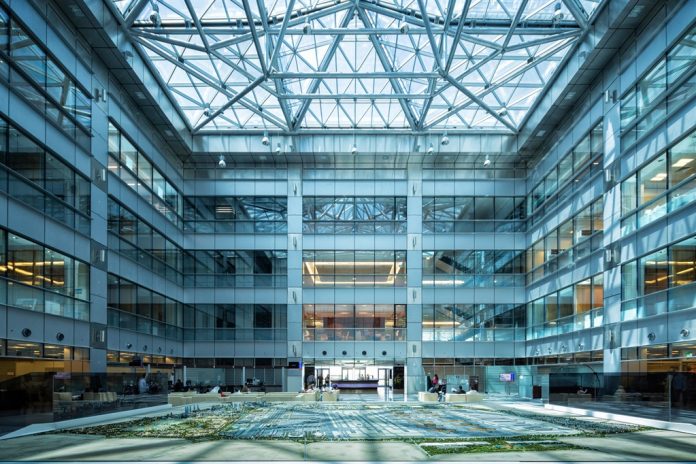
Dubai is looking to a digital future as it moves beyond its traditional reliance on trade, tourism and real estate in its growth strategy.
The UAE city has recently announced several changes aimed at nurturing innovation, including the adoption of open data and higher levels of e-commerce and sharing platforms, as well as the development of artificial intelligence and robotics.
As part of the innovation masterplan, the city, which has historically suffered from office oversupply, is shaking up its licensing of free zone rules, which have played a key role in its past economic development. At present, Dubai has more than 20 free zones, which allow foreign investors to own 100 percent of their business without a local sponsor and act as a one-stop shop with the city’s authorities. For VAT purposes, they are treated as being outside the UAE.
However, by the end of this year, new rules will allow 100 percent foreign ownership of companies based outside these zones.
Ease of doing business in an increasingly digital age is at the top of Dubai’s free zone council’s priorities.
“Historically, the traditional planned approach has worked well for Dubai and attracted companies for more than just financial reasons,” says Fadi Moussalli, JLL Head of International Capital for MENA. “But technology is altering how people work and live and global competition for talent, capital and business is becoming more intense.”
The proposed changes to Dubai’s free zone laws could boost Emirates’ local businesses and fuel wider real estate development within the country.
A new occupier landscape
Fostering new start-up businesses – and building stronger ties with businesses from south and east Asia – could help to rebalance Dubai’s corporate profile.
“High-end tenants such as accountancy and law firms, have dominated take-up,” says Moussalli. “But tech firms can certainly play their part in changing the overall occupier landscape.”
Globally, Dubai ranks ninth in terms of tech start-ups per gross domestic product and 23rd on the presence of large technology companies per head of population. More government initiatives could, Moussalli says, further increase the appeal of Dubai, which remains the MENA region’s most transparent real estate market.
As Jeremy Kelly, director at JLL Global Research, says: “A new global ‘digital geography’ is emerging and Dubai is responding to this new reality. As tech companies incorporate new priorities into their location decisions, the city is positioning itself as a strong base for both local and international businesses.”
A wider mix of occupiers from a range of sectors could simultaneously boost the investment market, says Moussalli, while the geographical spread of tenants, which is heavily weighted towards Western companies, could also evolve.
“These changes will have a positive impact ultimately for real estate,” he says of a city whose office market is characterised by large, multinational, often financial sector occupiers building their offices to suit.
For smaller firms in their infancy, a period of falling rents and more choice, according to JLL’s recent report, could prove attractive. With the office market moving further in favor of tenants, landlords continue to offer more attractive terms such as reductions in rental rates, rent-free periods, fit-out contributions and other concessions – all important considerations for small and mid-size tech companies.
Taking the initiative
It’s not just about cultivating innovation; it’s about showcasing it too. With Dubai playing host to Expo 2020 in the coming years, the city’s own technology credentials will be in the spotlight.
And its plans to be a smart city are well underway. Government agency Smart Dubai is tasked with its digital transformation, to create a ‘happier’ city for citizens and a more attractive destination for investors.
Working with IBM, Smart Dubai recently launched a new Dubai blockchain platform to drive digitisation of the economy and make the emirate a paperless government by 2021.
Blockchain is already being used by government entities across sectors including roads and transport, energy, healthcare and education.
In June 2018, the Dubai Airport Freezone Authority, home to companies including aviation heavyweights Boeing and Airbus, GE Aviation, Panasonic and Rolls-Royce and the economic zone that encompasses Dubai International Airport, launched the world’s first commerce platform for free zones to allow global companies to connect and trade via Dubai. The business-to-business platform uses artificial intelligence, blockchain technology and virtual business licences.
It’s just the start, says Moussalli. As Dubai continues down its digital path, it will not only put itself on the map for technology but it will also be able to capitalise on changes as they happen in the global digital economy.
As Moussalli concludes: “The way in which Dubai responds to the digital economy will have a profound effect on the city’s future and the dynamics of its real estate market.”


































